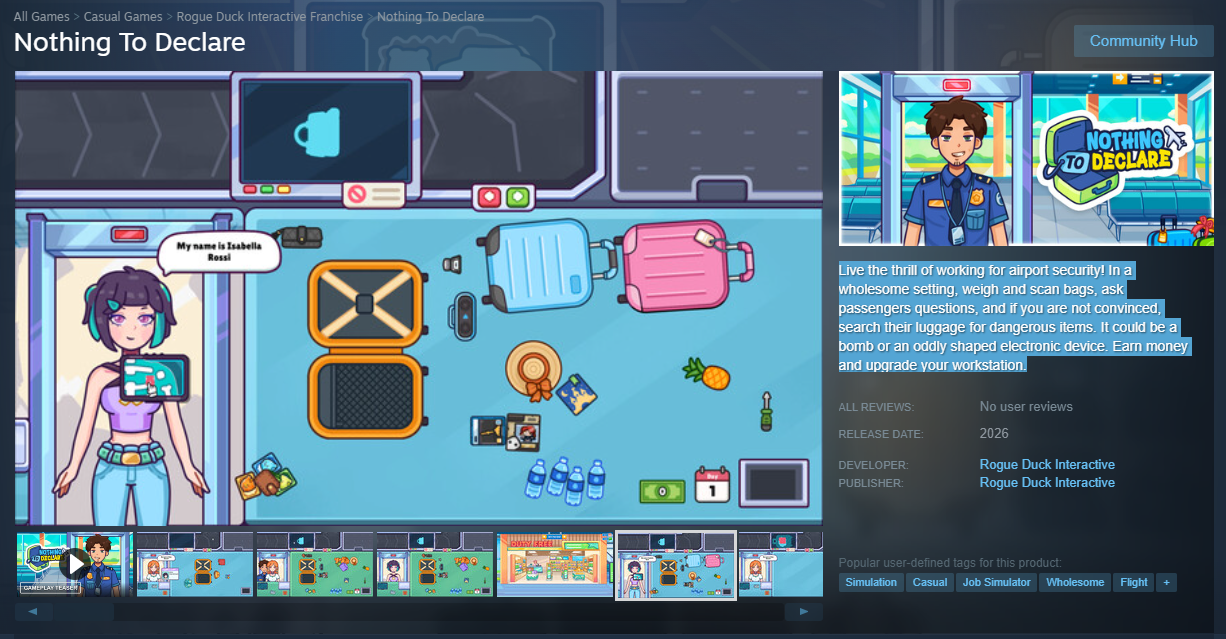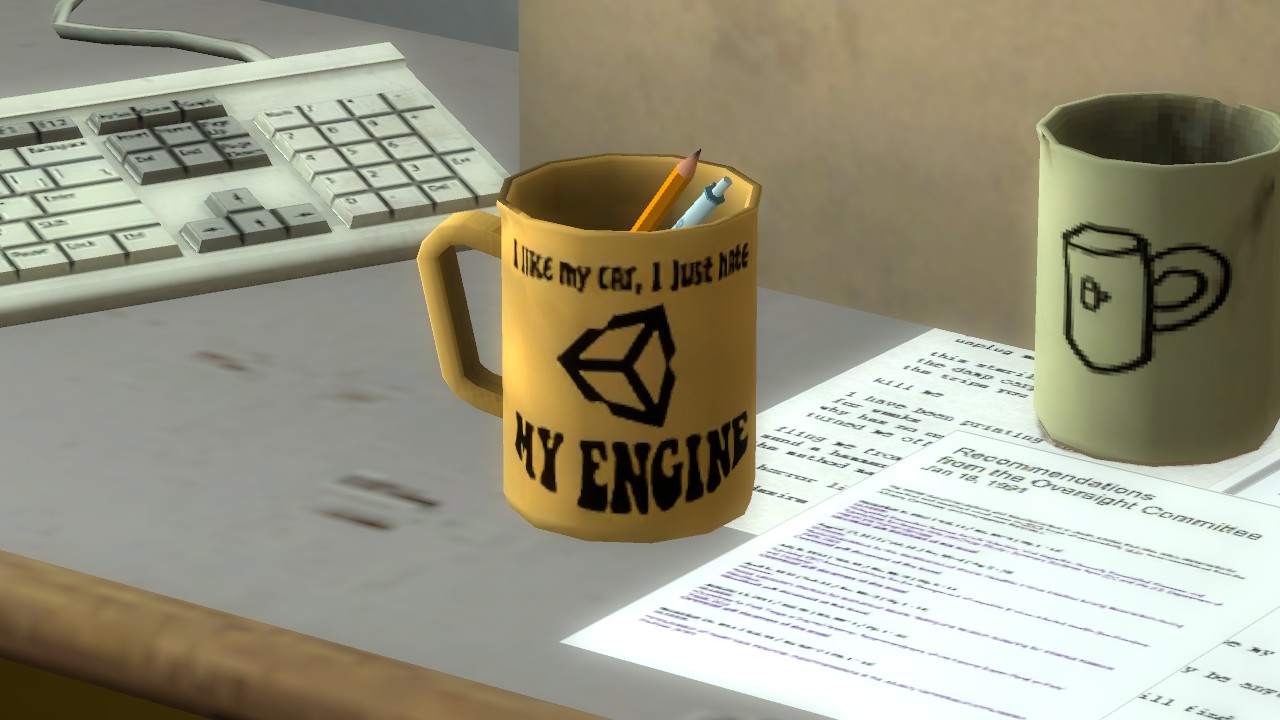Here’s an advertisement I got from a game company named Rogue Duck Interactive.
Thu Aug 28 05:05:07 +0000 2025Start your cozy airport security job!👮🏻♂️
Weigh and scan bags, ask passengers questions, and if you are not convinced, search their luggage for dangerous items.
Wishlist on Steam!

The game they’re advertising here — which they neglect to name outside the screenshot — is “Nothing to Declare.”1 And it caught my eye, because there’s problems.
papers please
If you’ve been living under a rock for the last ten years you might not recognize this as the gameplay from Papers, Please.
Papers, Please (2013), of course, is the multi-million-selling dystopian bureaucracy simulator game where you work as an immigration enforcement officer for a despotic regime.
Papers is known as one of the games of all time. It uses the mechanics of rote bureaucracy — checking correctness of paperwork, matching dates, enforcing documentation requirements — to connect the player to a cruel and miserable world. The message and mechanics perfectly intertwine: the dystopia is entwined with the nature of the policing, which is both the setting and the game mechanic.
It’s an intense, profound piece that prompts the player to think about the way political structures affect real human lives. It prompts introspection about the role and agency of the individual within a system and how morality responds when someone is faced with a hard reality: a political and economic moment where harming others for profit may be the only way to feed your own family. Papers is “video games as true art”, “brilliantly written”, “grim yet affecting”.
Rogue Duck hasn’t been living under a rock. They know their game “takes inspo” from Papers, Please, but it has its own “original take and ideas.”
Sun Sep 07 02:51:36 +0000 2025@sensdertale Team definitely likes and takes inspo from Papers, Please. But I think both games can exist together, and I guarantee we will have our own original take and ideas in it.
but cozy
Now, I don’t care that Rogue Duck is iterating on Papers. What’s hooked me here is this original take they’re so excited about. Because Declare is more than a shameless clone: it has its own identity and it does have something to say. Nothing to Declare comes on stage following Papers, turns to the audience, and what it has to say is: “man, that guy was a downer, am I right?”
That fun new original idea Rogue Duck adds to the equation is that now the bureaucracy of immigration is fluffy and wholesome. A fun little action parallel to making postcards and pouring coffee.

This isn’t even an interpretation, they shoehorn it right in their store description.
 a wholesome plane has hit the second cozy tower
a wholesome plane has hit the second cozy tower


 VR First Thoughts
VR First Thoughts
 “I love my car, I just hate my engine”
“I love my car, I just hate my engine”